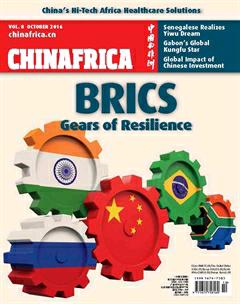A Matter of Time
The Chinese people have a different understanding of time compared with Westerners. In the past, when making an appointment, the Chinese would usually say, “lets meet in the morning,” or “in the afternoon,” or “in the evening.” They would seldom specify at which specific hour they would like to meet.
Such a concept of time has been formed along with Chinese lifestyle since ancient time. In history, Chinas economy mainly relied on agriculture, and the living habits of the Chinese were deeply rooted in the agricultural economy, such as getting up at sunrise and going to bed at sunset. Ancient Chinese people told the time of the day by the movement of the sun, and during the night by the regular beating of the watches by the night watchmen. Time for them was not an accurate concept. Traditionally for the Chinese there were 12 periods in a day, with one period lasting roughly two hours.
Such a concept of time is embodied in many aspects of life. Taiji, for example, is representative of Chinese martial arts and has very stable and slow movement of postures. Taiji believes that slowness curbs rapidness, and mildness subdues strength, which to a large extent shows the character of the Chinese nation. Take traditional Chinese medicine as another example, unlike Western medicine, Chinese medicine does not pursue an immediate cure of illness and thus a quick recovery of the patient, but an overall balance of the physical functions of the human body, and the treatments are centered on the gradual and progressive adjustment and nourishment.
A casualness and tolerance towards time accompanies this concept of time. Chinese people welcome friends to visit them “at any time they like,” to show their closeness and casualness. They are not offended by visitors without appointment even if the visit disturbs them. In the past, a visit might take as long as the hosts and the guests liked. Such a concept of time made the Chinese very generous with their time. “Please walk slowly” and “please eat slowly” are usual polite expressions in China, and mean to take ones time and enjoy oneself.
The Chinese people are also flexible toward time according to their needs. Zhuangzi, an ancient philosopher believed in “adaptation to time,” that is, to follow the natural trend of time, and Confucius believed in “good timing” and“opportunity.” As a result, the Chinese are not rigid toward time. In business activities, if a certain agreement is not reached within a time limit, both parties usually will not give up but continue to negotiate and communicate for better understanding. And for gatherings, the Chinese decide the starting time, but they seldom specify the ending time. A gathering ends at the time both parties feel proper. In this sense, people are the masters of time.
Albeit the traditional concept of time for the Chinese regards time in a slow and casual manner, the current concept of time is changing with the fast social-economic development and quickening tempo of living. It attaches more importance to objectivity than subjectivity, following the trend of economic globalization and playing a positive role in social-economic development. Yet from the perspective of human nature, human beings should be in charge of time. We should admit that the traditional concept of time in China is endowed with a deeper sense of humanity and may regain peoples favor in the future.

